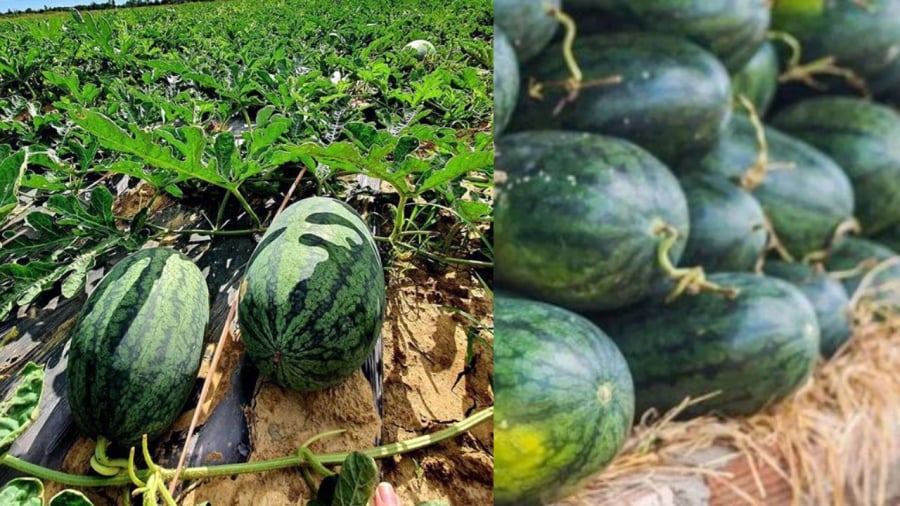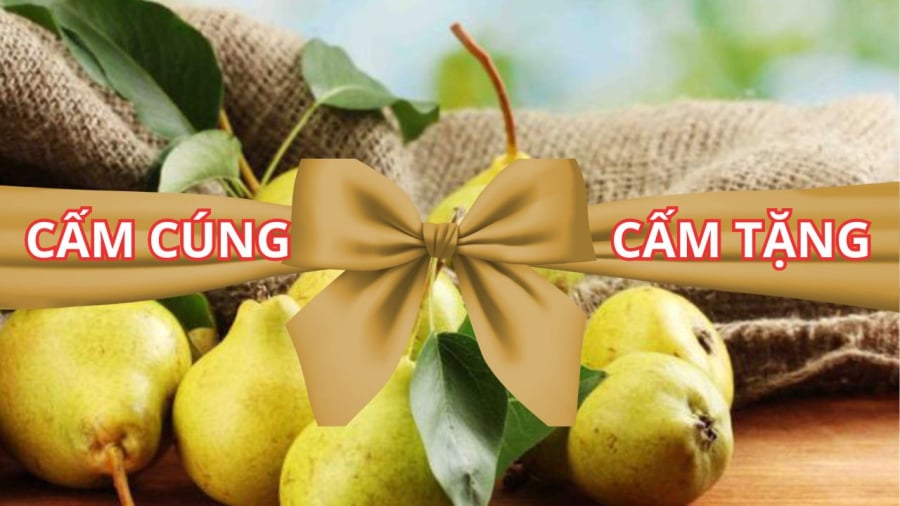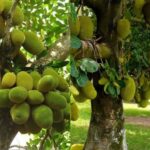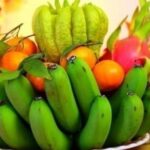Fruits and offerings are integral to ancestral worship during special occasions such as the 15th day of the lunar month, the 1st day of the month, death anniversaries, and holidays. However, certain types of fruits are rarely used for this purpose.
Fruits that lie close to the ground for extended periods (watermelons, Asian pears, etc.)
In the past, people believed that things lying close to the ground were not clean or dignified. Therefore, fruits like watermelons, Asian pears, and muskmelons, which lie close to the ground for long periods, are considered to absorb negative energy due to their prolonged contact with fertilizer and dirty soil. As a result, they are thought to carry bad energy and could disrupt the positive energy of the altar if offered as incense, thus disrespecting the souls of the ancestors.
Placing these types of fruits on the altar may bring in negative energy and disrupt the energy field of the worship space.

Watermelon lying close to the ground
Hence, traditionally, fruits chosen for offerings are those grown on high branches, with attractive colors, and cultivated in clean environments. For this reason, our ancestors were very careful when buying offerings, never placing them low but always on a table, even before washing them, or putting them in a clean basket or tray if a table was not available.
The delicious but tabooed pear
Pears are expensive and sweet, but in the past, they were considered taboo. This is because the word for pear in Vietnamese (“Lê”) sounds similar to the word for leave or depart (“Ly”), suggesting separation and bad luck. In Chinese, the character for pear is also similar to the one for separation, carrying the same ominous connotation. As a result, pears were avoided in ancestral worship rituals and gift-giving. Today, there are many new varieties of pears, and they are considered expensive fruits often used for gift-giving. However, when preparing offerings, pears are still not commonly included in the group of five types of fruits.

The tabooed pear
Spicy and sharp-shaped fruits
Fruits that are spicy and sharp-shaped, like chili peppers, should be avoided for incense offerings. The pungent taste of chilies is believed to drive away souls, and their sharp shape can bring negative energy to the worship space. Additionally, chilies symbolize bitterness, sourness, and suffering. While some people include chilies in the group of five fruits due to their attractive colors, from a feng shui perspective, this is not advisable as it can disrupt the energy field of the worship space and bring bad luck.
Fruits that are considered auspicious and bring good luck, wealth, and prosperity include bananas, custard apples, pomelos, oranges, grapes, peaches, apples, and pomegranates.
Reference information for divination
The 5 Taboos of Altar Placement: A Guide to Preserving Wealth and Luck
The ancestral altar is the most sacred and revered space within a Vietnamese household, serving as a testament to the family’s devotion and respect for their ancestors. The placement of this altar is of utmost importance as it can bring about either positive or negative influences on the family’s well-being.
The Secret to a Prosperous Home: Unveiling the Myth Behind the Jackfruit Tree
The jackfruit tree is a majestic and fruitful tree, revered for its delicious fruit and beautiful timber. However, in the past, people were averse to planting jackfruit trees in front of their houses. This reluctance stemmed from a belief that the tree’s strong presence and deep roots could bring bad luck and cause an imbalance in the harmony of the home. Superstitions aside, the jackfruit tree is a magnificent addition to any landscape, offering shade, beauty, and an abundance of sweet, nutritious fruit.





































